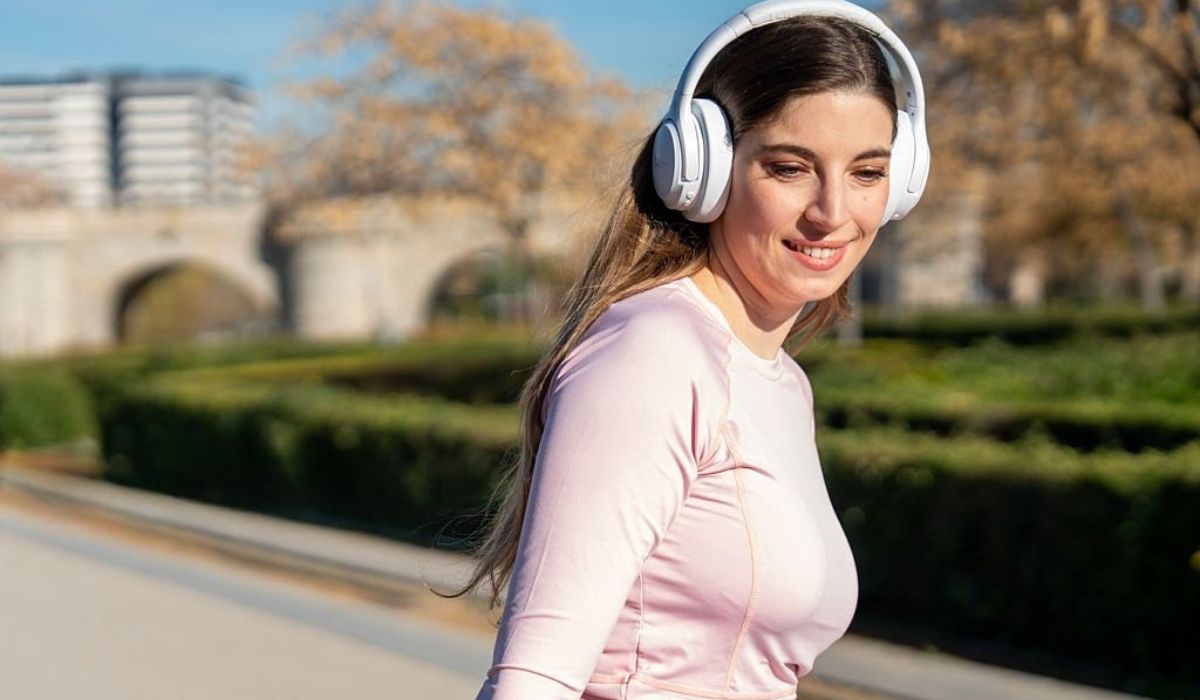Mental health is never linear. Some days, I feel like I have everything under control, while on others, it’s all I can do to get out of bed.
I’ve lived with anxiety and periods of depression for many years. Therapy, medication, and self-care all help, but sometimes, without warning, the old patterns return.
A couple of months ago, I went through a rough patch. My thoughts felt like they were on a hamster wheel. I couldn’t focus on work, sleep was restless, and I found myself feeling hopeless over the smallest setbacks.
One thing I’ve learned over time is that I need to keep leaving the house, even when I don’t want to. It’s too easy for me to retreat indoors and let my world shrink to four walls. But I needed a way to make going outside less daunting.
That’s when I tried sound walking—and it changed everything.
What Is Sound Walking?
It’s as simple as it sounds (pun intended): instead of rushing through a walk lost in your worries, you slow down and pay attention to the sounds around you.
You listen, intentionally. Birds singing, wind in the trees, cars in the distance, footsteps on gravel, snippets of conversation.
Sound walking is a mindfulness exercise. It grounds you in the present moment by anchoring your attention to what you hear, rather than letting your mind spin off into fears or regrets.
You don’t need any special equipment or training. Just a willingness to notice what’s already there.
Why I Tried It
I’ve used mindfulness apps before, but sometimes sitting still with my thoughts makes me more anxious.
During this latest episode, my usual coping mechanisms felt too hard. Meditation seemed impossible. Even my usual walking routine wasn’t helping much because I’d spend the whole time replaying worries in my head.
I read about sound walking in an article about mindful urban exploration. It seemed approachable—less intimidating than a formal meditation session, but still a way to break the cycle of rumination.
So I gave it a shot.
My First Sound Walk
On my worst day that week, I put on comfortable shoes and went to the nearby park. I told myself I didn’t have to do anything except listen.
At first, my mind kept wandering back to my anxious thoughts. But I gently redirected myself: What can I hear?
I heard wind rattling dry leaves. A dog barking far away. A child is laughing. The low rumble of a bus.
It was grounding, surprisingly. I wasn’t “fixed,” but I felt less caught up in my head.
It Gave Me Something to Focus On
The most helpful thing was that sound walking gave me an external anchor.
My anxiety often thrives on my turning inward, replaying worst-case scenarios over and over. This exercise forced me to look (or rather, listen) outward.
Instead of obsessing over what I’d done wrong that day or worrying about the future, I focused on small, present details:
- The rhythmic crunch of gravel underfoot
- The sharp caw of crows
- A distant airplane overhead
Each sound became something real, here and now, interrupting the swirl of anxiety.
It Made Me Feel Connected

Another unexpected benefit: sound walking made me feel less alone.
Not in the sense of chatting with people, but in realizing that life was happening all around me, whether or not I was part of it.
Hearing the city going about its business—the hum of traffic, the chatter of strangers, the rustle of trees—reminded me that I’m part of a bigger world. Even when I feel isolated inside my head, I’m connected to this living, breathing environment.
It Helped Me Build a New Habit
Since that rough week, I’ve kept doing sound walks, even on good days.
I don’t always have time for a long stroll, but even ten minutes around the block while paying attention to sounds can reset my mood.
Some days I do it in silence, just listening. Other days, if I’m feeling bold, I take a small notebook and jot down interesting sounds. It’s surprisingly fun to “collect” them:
- A fountain splashing
- A birdcall I don’t recognize
- Someone whistling a tune
Why I’ll Keep Doing It
I don’t pretend sound walking is a cure-all. I still have tough days. I still take my meds and go to therapy.
But this practice has become a gentle, reliable tool I can use anytime. It lowers the barrier to getting outside. It calms my racing thoughts without requiring me to “empty” my mind completely (something I find nearly impossible when anxious).
Most importantly, it helps me feel present. Even on the worst days, there’s a little moment of peace in simply listening.
If you struggle with anxiety or stress and want something simple, free, and soothing to try, I’d recommend giving sound walking a shot.
You don’t have to do it perfectly. Just step outside—and listen.
Final Thoughts
Living with anxiety means constantly adapting. What helps one day might not help the next. But the more tools I have, the better equipped I am to face the hard times.
Sound walking is one of those tools for me now. I’m grateful I discovered it, and I hope sharing this helps someone else who needs it.

